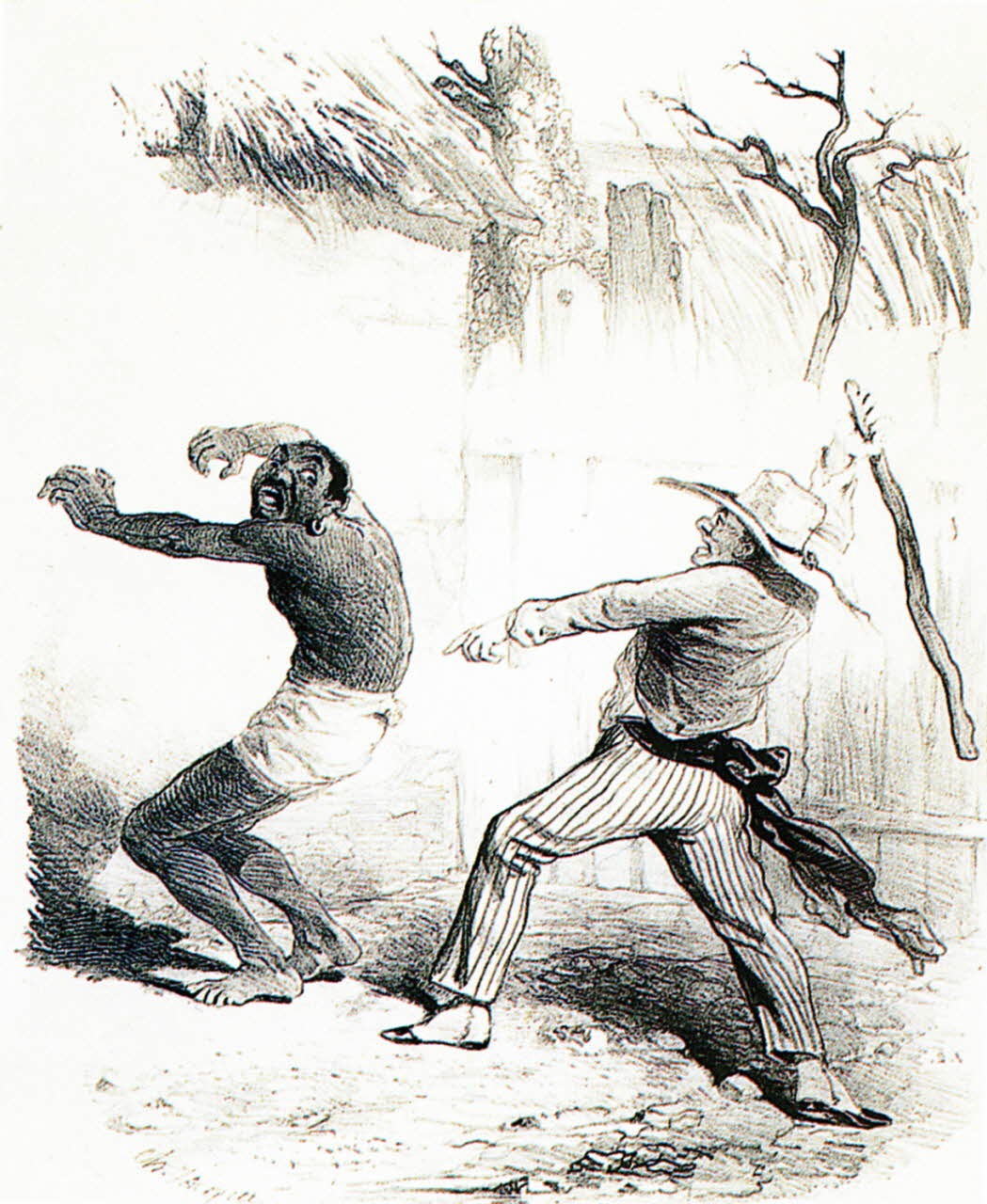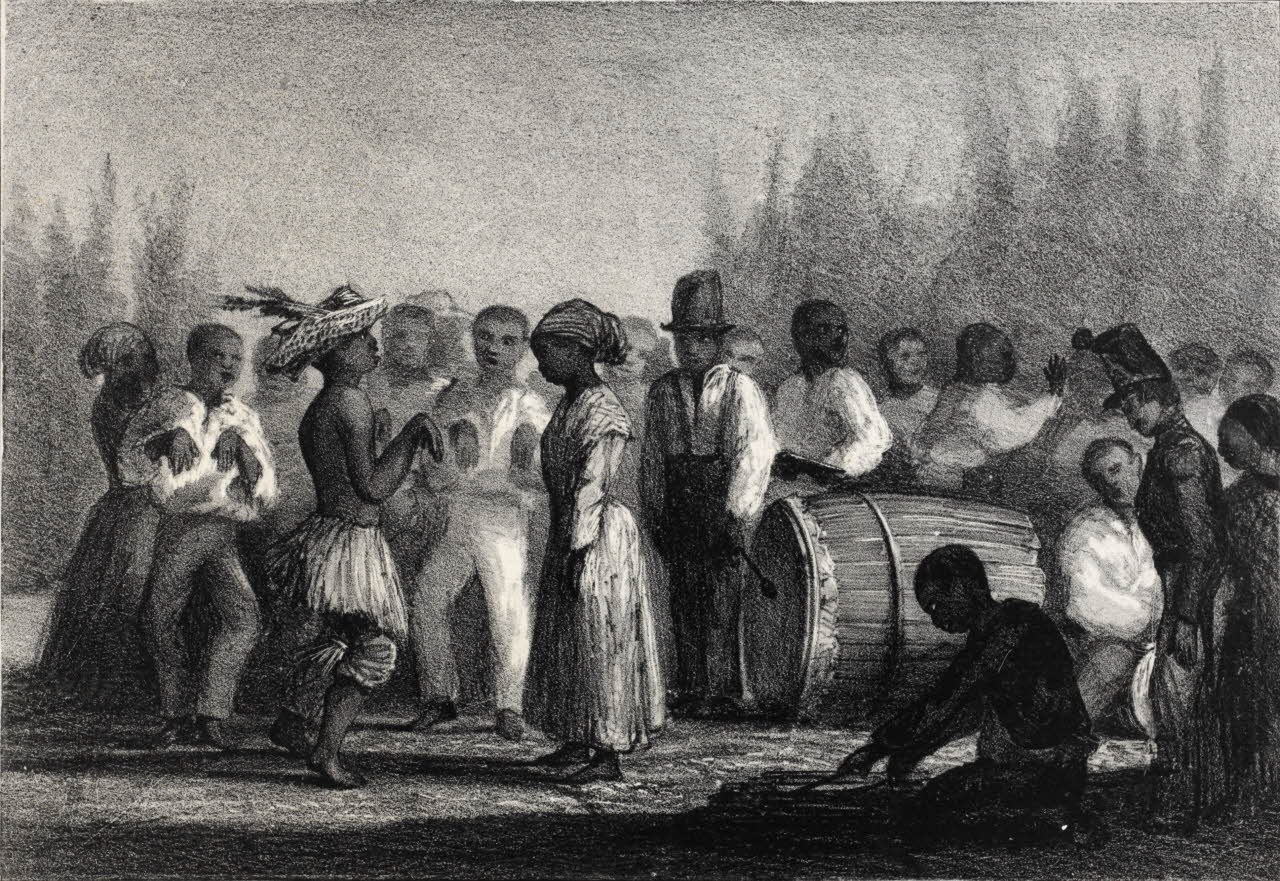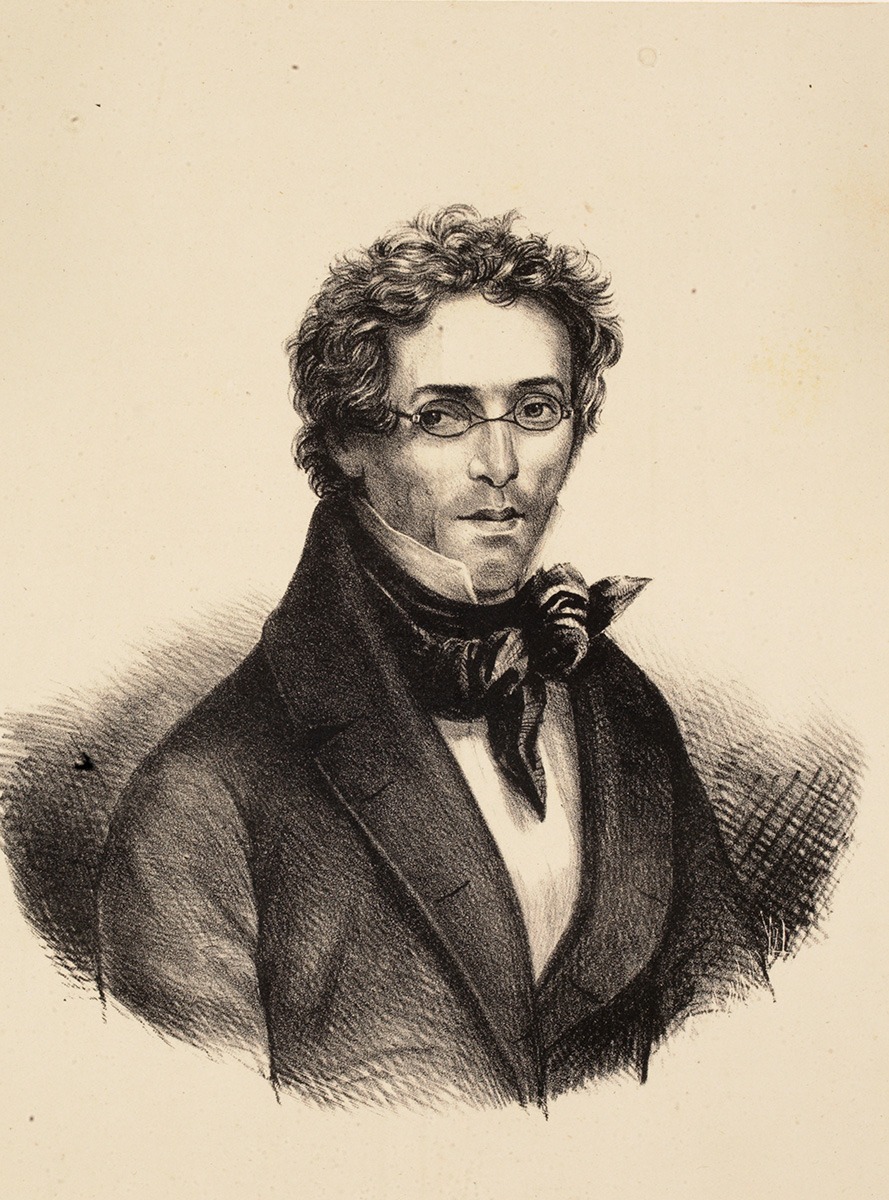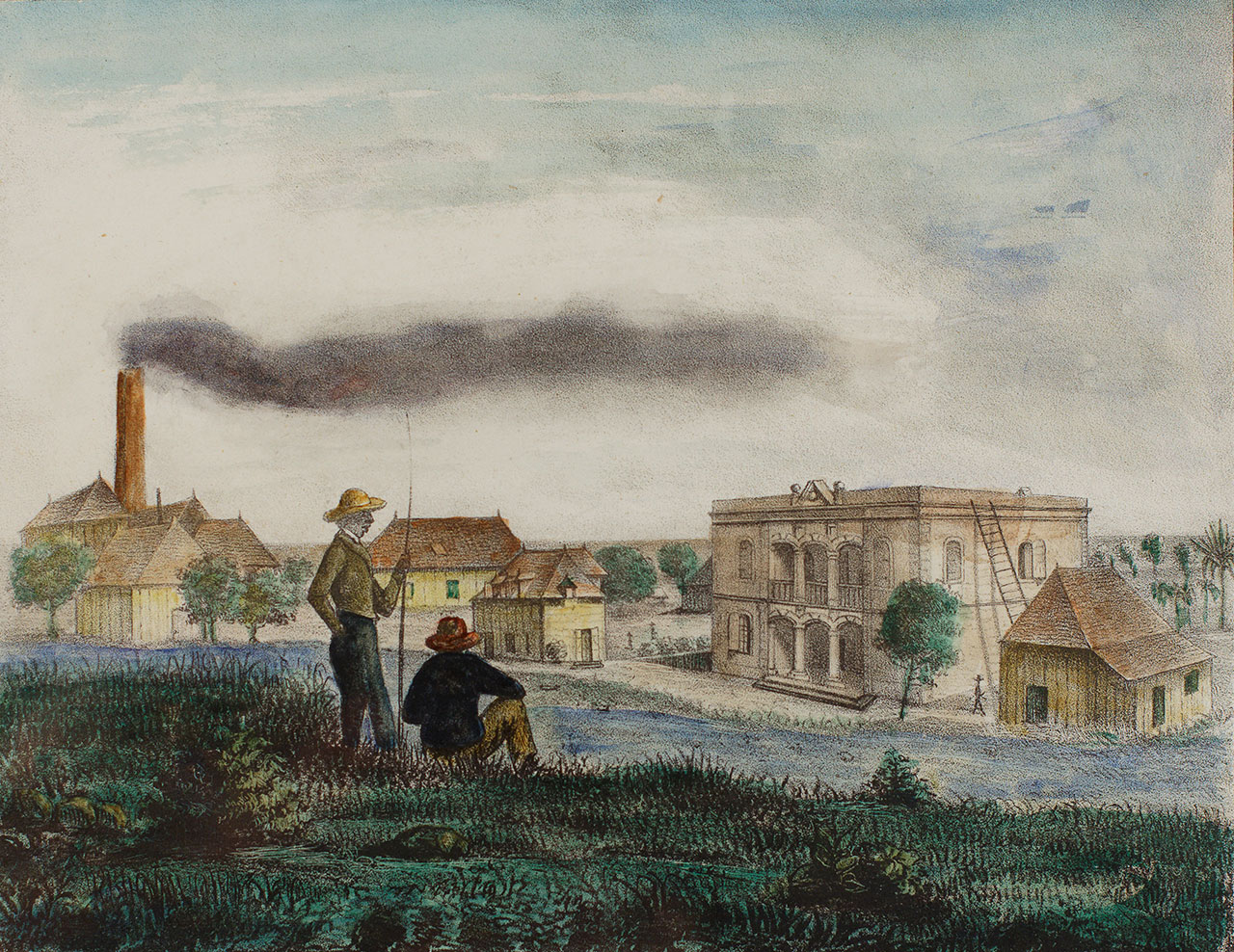The text does, however, recognise these mobile goods as having souls, since they are to be brought up in the Catholic religion. In addition, the slave is considered to be incapable of taking decisions and signing contracts on his or her own initiative . He or she is given no civil responsibility, contractual or otherwise, since the master is responsible for repairing any damage the slave may have caused. Article 30 stipulates that the masters “are personally responsible for repairing the damage … in the event of theft or other damages caused by their slaves…” He or she is, however recognised as having criminal responsibility, facing the death penalty in the event of violence towards the master or his family . The death penalty may also be applied in the event of “excess or assault” directed towards the free members of the population . The very notion of a ‘responsible object’ is truly paradoxical. Is it possible for an object to be considered responsible? It is indeed contradictory to consider the slave as being an object, using him or her to obtain a maximum amount of profit, but at the same time indirectly consider him or her as a subject, since only a subject can be considered as having responsibility. The slave is without any doubt a hybrid being. He or she enjoys certain ‘prerogatives’, not always respected by the masters: food, shelter, clothing, guaranteed rest on Sundays and public holidays , as well as the prerogative of not being seized and sold separately from his wife and young children before their puberty , the prerogative of not being forced by his master to marry against his will , and finally, that of being taken care of by the master in the event of disability .
Ultimately, we can conclude that the French law did not respect the human dignity of those reduced to slavery, implying abuses and leading to violence. Consequently, the law favoured perversity, since power enjoyed by a human being will lead to abuse. The law declared that slaves were to obey and respect their masters. The latter could punish their slaves in the event of any fault committed at their work, or any attempt to attack the master or a member of his family. While all masters were not excessive in their behaviour, we can only note that the door leading to excessive behaviour was well and truly open.

The status of those enslaved led to their incapacity. While most of them, with the exception of the very youngest, had achieved their initiation before being brought into the colony, they were considered to be uneducated and ignorant. However, despite the extraordinary suffering they underwent on Bourbon island, they managed to show extraordinary creative and inventive spirit. Since the hope of all slaves was to one day live as free citizens, they showed extraordinary resourcefulness aimed at putting an end to the dreadful system of slavery.
The study of the concept of time as experienced by the slaves allows us to see the importance of New Year’s Day for the enslaved, since the day in question became a landmark for them in respect of time. When Jouan, a slave belonging to Mr Cardonne, was arrested as a fugitive and asked to quantify the time he had spent as a fugitive, his reply truly surprised those interrogating him. Whereas for the administration dealing with maroon slaves (fugitives), he had been absent for one month and 21 days, he insisted that he had been absent for two years, certainly not in order to show off and appear important, but quite simply to indicate that he was telling the truth. The official account of his interrogation, following his capture, shows his capacity to express himself, as well as his perspicacity:
Asked to indicate how long he had been a fugitive
He said two years
Asked whether, during this period of maroonage, he had not gone back to his master, notably on the 4th of this month,
He said he had not set foot on his master’s property for two years and that he had taken refuge in the forest.
We declared to the accused that he was mistaken, and that he had not been a fugitive for two years, but only since the 5th September of this year, that is to say one month and 21 days
He replied that he was not mistaken, that he had spent two bananes days (Happy New Year days) in the forest, which meant two years
When asked to say in which forest he had spent two years as a fugitive
He replied that it was in the forest of la Rivière des Pluies and that he had spent some time in Les Salazes
When asked to tell us whether he knew the difference between one year and one month
He replied that he knew when one year ended and another began thanks to the banane (Happy New Year) festival, and that he knew that one month has four weeks .
A deeper study and analysis of New Year’s Day highlights, on the one hand, the strategy adopted to celebrate the day in question, and on the other hand, how the day was seen by the masters, notably the most devious of the latter. A scene of the Desbassayns estate on New Year’s Day throws light on the complexity of the system.
Since the white population was afraid what slaves might say, they could never reveal their true feelings. Consequently, the true meaning of their words lies under the surface. On Bourbon island, the slaves set up a custom reflecting their spirit of resilience and their attempts to force those in power to act more reasonably. At the start of each year, they would go and wish their masters a Happy New Year. It thus became a day of truce, commitment and truth. Why would a slave decide to wish his master a Happy New Year? To merely see the extreme alienation would be an over simplification. The process, apparently beyond understanding, was a daring one and had important consequences, both for the master and the slave. After wishing the master a good year, the slave had to work hard to make sure the master’s year was a good one and the latter had to do the same for the slave. While most of the masters welcomed their slaves and, to express their gratitude, would give them their two outfits for the year and a glass of alcohol or lemonade, a few of them, loath to see any changes and aware of the challenges, hated the process, of which they saw the subversive character, a sort of trap which made them extremely uncomfortable. In their turn, they had to reply ‘Happy New Year’, which meant that they no longer had a clear conscience, since they had no intention of questioning their status as potentates. What made them feel uncomfortable was the hypocrisy of the situation, since in actual fact the master who replied ‘Happy New Year’ to his slave was making a tacit commitment. He was to do everything in his power for the slave’s year to be a truly happy one. The process applied by the slave thus appears thoroughly well thought-out and clever. It is true that it did not threaten the system, but was an act of non-violence. Through this subtle hidden attempt to put an end to the excessive nature of the system, in his own way, the slave made an attempt to destroy the perverse structure of the society. This explains why the master who had no intention of changing even the slightest element of the society had a very low opinion of the day concerned, aware of the reality behind the process.
In his diary covering the years 1811-1835, Jean-Baptiste Renoyal de Lescouble, owner of a middle-sized estate in Sainte-Suzanne, describes his slaves’ attitude on the day concerned, reflecting his role as a potentate resisting all change. For the slaves, it was a day of rest and celebration, which they spent dancing and singing. The author of the diary notes that 1st January 1813 was very wet. “Last night, the Blacks from (the estate of) Grinne came here to the Grand Hazier to celebrate the New Year, as is the custom; but today, as it rained non-stop, their joy was somewhat dampened, though this didn’t stop them from dancing and having fun” .
This middle-sized estate owner, a Freemason and considered as a liberal, a man of progressive ideas, felt uncomfortable when the slaves came to see him on that day, forcing him to do his duty and respect their custom. Uncompromising with any who committed the least fault, he had trouble admitting that they could come and wish him a Happy New Year. Their attitude defied understanding, as he was perfectly aware that a torturer does not deserve to be thanked or rewarded and he considered the whole process to be ridiculous. On 1st January 1824, he wrote “the whole New Years Day circus has begun,” confirming the perpetuation of the slaves’ celebrations. “The Blacks whooping with joy, the beating of the drums, the more or less ridiculous wishes for the New Year: all this is an unbearable rigmarole, but we have to put up with it. Like many others, the slaves spent the day drinking, making a din, dancing and nothing else. But they forgot all their troubles and that’s a lot” !

The diary writer is far from stupid. While he cannot deny the positive side to their celebrations, the opportunity to briefly forget their suffering, he is intolerant of their audacious attitude when they come to wish him a happy New Year in the morning, since he obviously does not consider that his role is to make sure their year is a happy one. If he considers their wishing him a happy New Year to be ‘ridiculous’, his attitude is linked to a change of behaviour they expect him to show. Having no intention of being destabilised by their excessive expression of goodwill, he finds it ridiculous to see those slaves that he so pitilessly mistreats coming to wish him happiness.
Since the slaves did not always get on well together, there were often fights during the festivities. On. 1st January 1826, the master spent the day with Bruno, one of his friends. After the dinner, a courier came to inform him that the slaves he had hired were quarrelling and fighting. He immediately went to see what was happening, and they soon calmed down when he arrived, thanks to the action of Mr Lewis, who ended up being insulted and threatened .
Jean-Baptiste Renoyal de Lescouble was pleased to see it was raining, since it meant he did not need to put up with welcoming his visiting slaves. As the morning of 1st January was wet and the rain continued all night and most of the morning, he declared with satisfaction: “Those coming to be given their presents managed to do so in the afternoon. The day was like any other, a rather dull day” . In 1829, since it was raining once more, he did not need to welcome the slaves, which he was rather pleased with: “The first day of the year, which is usually fairly tiresome, has not, however, been as bad as I expected. I didn’t have to complain so much about saying Good Morning and a Happy New Year to reply to the Blacks, who always do so with the one aim, which is the hope of getting their glass of alcohol. The weather has been so dreadful that they really had to be brave to go out in it. In my house, there was just one incident: Noel, my cook, got drunk and his cooking was all over the place. Bruno sent me some beef from an animal that he had killed for this famous day” .
While remaining superficial, the master’s analysis of the slaves’ actions is interesting. First of all, through their attitude, the slaves make this day, ‘dull’, and ‘tiresome’ for him. Such remarks reflect his refusal to give them their annual presents and glass of alcohol. Secondly, we can note that this master is under no illusions, since he has previously emphasised that their actions are ridiculous. What he cannot stand is their making fun of him.
The year 1830 began with the weather being fine, totally different from the previous one, but he does not mention anything about his slaves . When the masters were in mourning, going through an economic crisis or suffering from poor weather, this had an effect on the slaves’ celebration of New Year’s Day. The first day of the year 1830 “is an annoying day for this landowner, an ordinary day which he spent without any celebrations in the company of his wife and his children”, as one of his children was sick . The following year, the general atmosphere was the same and the day was an insignificant one. “We are in no position to express the joy that reigns during more prosperous times.” . The end of the year 1832 was far from wonderful. “This is the last day of the year 1832 and the first quarter of the January moon, and we are going through a terrible drought. All the inhabitants must have committed serious crimes or sins for us to deserve such disasters, perhaps it is because we were too lenient with the persecutors, I think” . On the 1st of January 1834, he received a writ from a bailiff informing him that his son Fortuné had had his two Blacks arrested in Saint-Denis. The next day, he went to Saint-Denis to inform the royal prosecutor of his indignation before the behaviour of this “scoundrel” and he ended the year 1834 hoping that the following year would be better. The night of the 31st of December was wet. “The blacks dancing, the contortions of the men and women slaves imitating the civilised ladies were very amusing. On the whole, we spent a good day” .
Clearly, he was not against the slaves enjoying themselves on that day. However, he wanted them to do so amongst themselves and hoped that they would not come to disturb his peace by making any strange request.
According to revelations made by Victorine Monniot in the Journal de Marguerite, on New Years eve, the slaves on the estate of Nicol Robinet de La Serve at Le Colosse honoured their ancestors with the support of their master. Accepting the invitation from his slaves, in the afternoon he went to see them, along with all his family .

The ceremony, which gave a meaning to their lives and helped them to put up with their dreadful treatment, contributed to establishing a link between all the persons on the estate, since prayers addressed to the ancestors benefit all those taking part in the ceremony.
While New Year’s Day on each estate was the opportunity for the slaves to enjoy themselves, the latter were not exempt from legal issues if everything was not approved by the master. When the slaves from one estate invited guests from other estates without informing the master, those arriving could be asked to leave and accused of breach of the law of trespass. On the 1st of January 1800, following an invitation by Agapit, Lamour, a Black slave belonging to Mme Dejean and working as a baker for Mr Sentuary, went dancing at la Rivière-des-Pluies, in the company of the carpenters Gaspard, Come, Pélage and the blacksmith Anicet. Since Agapit had not informed his master of the presence of the strangers, halfway through the ball, the master’s son, armed with a rifle, came to chase them away. They obeyed, and only Michel what was arrested. Agapit was ordered to take him to the estate of M. Russel, to be placed in the stocks. As he escaped on the way there, Agapit was accused of complicity. Toussaint, a domestic slave belonging to the widow Hébrard, declared that he had been invited by Agapit to play the fiddle and that he went to do so with his master’s permission. However, he escaped with the other slaves when Mr Dejean chased them away using his rifle butt. Nobody spoke irreverently to Mr Dejean. As Lamour was accused of having shouted ‘to arms’ and of sedition, he declared that there had been no shouting and that he truly regretted having accepted Agapit’s invitation .
A description of New Year’s Day in 1845 on the estate of Desbassayns located in the hills above Saint-Paul, written by a Jesuit, is interesting, since the oral tradition gives a negative impression of Madame Ombline Desbassayns, who died on the 4th February 1846.
In his Histoire de Madagascar (History of Madagascar), father De la Vayssière describes a truly surprising scene taking place at the start of the year 1845, as described by R.P. Bertrand, a missionary at Maduré, when he stopped on Bourbon Ireland, that he describes in a letter sent to R. P. Maillard, his superior in Lyon. The priest, who finds it impossible to approve the practice of slavery, says that he was stunned to see the system in a new light.

I must communicate to you a few observations around a serious question which has been under debate for a certain time: the practice of slavery. I arrived with a number of beliefs and feelings of horror before this indignant trade of human beings. Without any doubt, nothing can change these certainties as regards the principle, but there are a few things that truly surprised me:
1° On the first day of the year, all of Madame Desbassayns’ slaves came in a ceremonious manner, accompanied by music played on the fiddle, before their mistress surrounded by her sons and daughters. After the usual compliments and a signal given by the bow, each of the mistresses held out her hand to one of the slaves and the ball began, a true family ball, very different from the idea I had of slavery.
2° The slaves of these families don’t see themselves as wretched as we might think. They hold their head up in front of their masters and are proud of the power and reputation of those that they serve. They say: ‘our house, our estate’ and show a sense of family, far stronger than that shown by the servants in our modern civilisation .
According to the revelations of this priest, who was against slavery, on New Year’s Day, following the wishes for the New Year expressed by the slaves to the master and members of his family, the ball was held inside the master’s house. At the start of the ball, the master’s daughters each danced with a slave. He says it was a true family ball. In actual fact, the barriers were not broken down, but this day did bring them closer together and what was seen as being degrading and unacceptable did not appear so on that day. This unexpected scene does not appear to have been invented by the priest to flatter this rich landowner and contradict the abolitionists back in mainland France, since his negative opinion of this dreadful system was very much entrenched, and nothing could make him change his mind. It simply reflects the complexity of the system and the necessity for those studying it to confront the reality and refer to a number of sources.